The last time Tory activists and MPs gathered for their annual party conference, it didn’t end well. Liz Truss had barely checked in to her hotel before she faced a full-on attack from Michael Gove, who started a rebellion against her proposed tax cuts live on air. Truss U-turned on her mini-Budget and cabinet discipline quickly collapsed. ‘It was the worst four days of my life,’ recalls a former Truss aide.
Rishi Sunak hopes to improve on this admittedly rather low mark. He sees the conference in Manchester as a potential moment of catharsis that could lead a Tory recovery. A wider reshuffle was delayed until later this year to avoid unhappy MPs venting on the fringes ahead of next week’s events. Downing Street is in bunker mode as the team finesse their plans.
Government aides complain that No. 10’s control freakery extends to the teleprompter – which means no minister can give a speech that hasn’t been word-for-word approved. To the dismay of Downing Street, Truss plans to attend – with a single intervention planned from the fringes. ‘She loves conference and hasn’t missed one for years,’ says an ally. Just her appearance is too much for some in her party: ‘It seems tone deaf,’ says one Tory. ‘It’s highly unhelpful and will be a big distraction.’
No. 10 knows the challenge the Conservative party faces. This week two polls put Labour’s lead at a seemingly unbeatable 20-point lead or more. Some Tory supporters are talking about a wipeout. The strange thing is that a lot of the time this isn’t said with dread but as a necessary prelude to clearing the decks. ‘The party needs to change – maybe they need to learn that the hard way,’ says one former backer.
Yet Sunak is finding cause for optimism. Aides say there has been a change in mood in the past few weeks. ‘He’s realised that he said what he thought in the leadership contest, he told truths and he still got to Downing Street,’ explains a confidant – even if he did lose the initial leadership contest. No. 10 thinks there is a chance more straight-talking could keep him there next year.
Why should we believe we’re about to see a new Sunak? Here’s the theory. First, we haven’t seen much of him yet: as chancellor he kept a relatively low profile, and he has been in No. 10 for less than a year. He has always been firefighting, not least with the long aftershock of Covid lockdowns. He entered Downing Street as the crisis PM, to hose down the antics of his two more colourful predecessors. It’s telling that the only factor that Sunak and Keir Starmer tie on in the latest Ipso political monitor is ‘has got a lot of personality’. Hardly anyone thinks this can be said for either of them.
After 11 months in the role, Sunak feels able to move out of crisis mode. I understand the conference theme and slogan will be ‘long-term decisions for a brighter future’. For a politician who, in the words of one of his backers, has two modes, ‘extreme caution and caution’, what does that mean?
The first of these ‘long-term’ decisions is on net zero. The Prime Minister is going to scale back two climate commitments. He will delay the 2030 ban on the sale of new petrol and diesel cars to 2035. He will also slow down the phasing out of gas boilers. Sunak is adamant that the general 2050 net-zero target enshrined in law will remain – but thinks other countries should go further on achieving their targets before UK voters suffer the costs. His new Energy Secretary, Claire Coutinho – a former special adviser in the Whip’s Office – has been tasked with finding a more pragmatic approach to net zero while keeping the party on side.
Both changes, ministers believe, can be achieved without legislation. That’s just as well given the division in the Tory party on the issue. MPs in southern seats worry that anything that looks as though the party is diluting its environment commitments could mean swing voters move to the Liberal Democrats. Labour claims Sunak’s net-zero shift is bad for the economy, arguing the change in policy will deter investment.
While Sunak’s changes will inevitably be seen as a response to the Uxbridge by-election – the Tories narrowly hung on to the seat through strong campaigning against Labour’s ultra-low emission zones – work has been under way since before the summer. ‘We wouldn’t make such a big decision based on holding on to a seat by 400 votes,’ says a No. 10 aide. As chancellor, Sunak had long been sceptical of the costs of the transition. He sees it as a prime example of politicians nodding policies through without proper scrutiny.
The problems of short-term decision making will be a key theme of Sunak’s conference speech. He will pitch himself as the politician best suited to the crises facing the country. ‘There are no easy solutions,’ says a senior government figure. ‘We need to be honest – and it is very fitting with everything he has said and done before.’ Sunak’s supporters believe he is best placed to do this. He has made decisions before that were not fashionable at the time, such as raising corporation tax or showing restraint over -public-sector pay.
So Sunak becomes the Minister for Hard Truths, asking you not to heed Starmer’s fairy tales – just as he warned people not to accept those proffered by Truss. Will his plan work? Theresa May – advised by Nick Timothy – learned through the 2017 election manifesto that voters don’t always want hard medicine. There are limits to how straight-talking Sunak wants to be. I gather he’s unlikely to ditch the triple-lock pensions pledge in the next Tory manifesto, even though many in his party see it as an unaffordable bribe. Sunak will also attempt to offer some hope in his speech, offering a glimpse of what he would do were he to win the election. The focus will be on education.
Even if conference goes Sunak’s way, the Tories need Labour to make mistakes. The decision by Starmer to unveil a migration policy that he has admitted would involve a push for some type of returns agreement with the EU is viewed as one such error. ‘The only time I think we have a chance of winning is when I hear Starmer talk about immigration,’ says a minister.
‘Everyone is writing us off. Wrongly,’ insists a member of the cabinet. ‘We’re getting ready to fight.’ It’s why, despite the pile of problems, next month’s conference could be a turning point, if Sunak is able to pull it off.
Got something to add? Join the discussion and comment below.
Get 10 issues for just $10
Subscribe to The Spectator Australia today for the next 10 magazine issues, plus full online access, for just $10.
You might disagree with half of it, but you’ll enjoy reading all of it. Try your first month for free, then just $2 a week for the remainder of your first year.


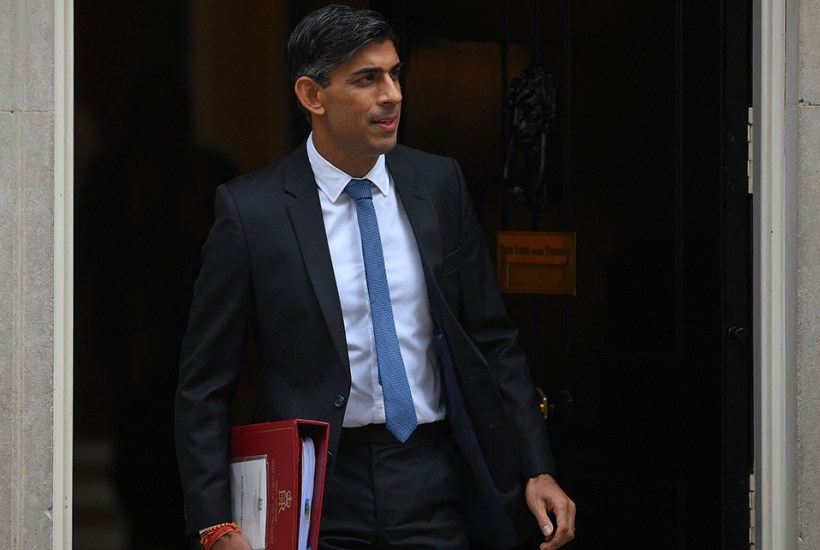
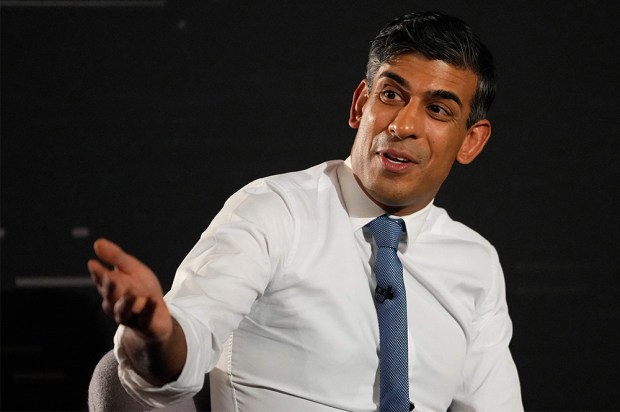
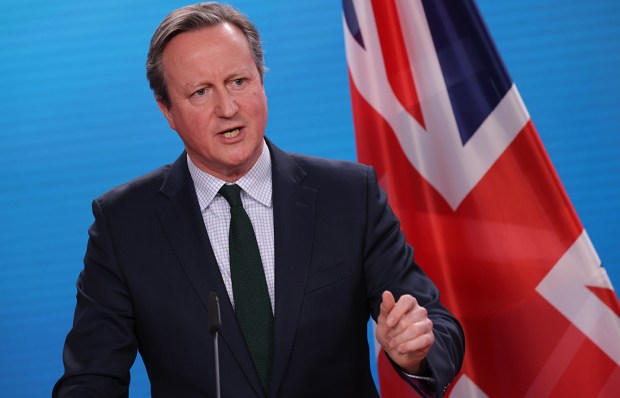

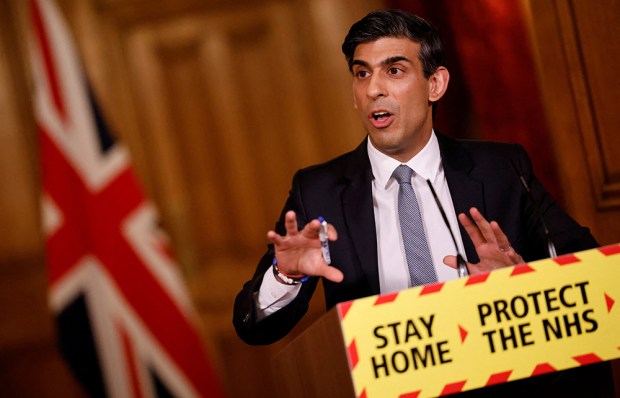

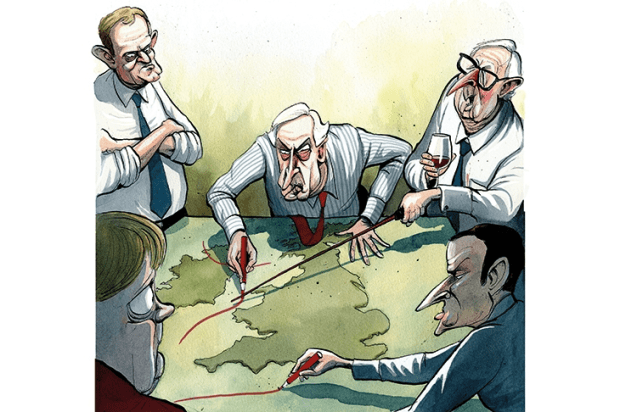






Comments
Don't miss out
Join the conversation with other Spectator Australia readers. Subscribe to leave a comment.
SUBSCRIBEAlready a subscriber? Log in